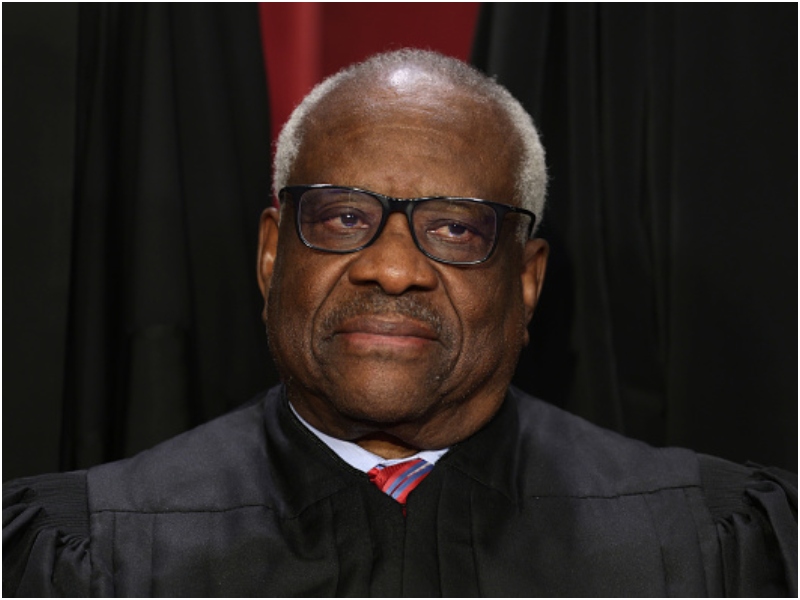On Thursday, the U.S. Judicial Conference, the federal judiciary’s top policymaking body, rejected requests from Democratic lawmakers to refer conservative Supreme Court Justice Clarence Thomas to the Department of Justice. The lawmakers had urged an investigation into claims that Thomas failed to disclose gifts and luxury travel provided by Texas billionaire Harlan Crow.
Thomas Amends Financial Disclosures Amid Scrutiny
In response to the allegations, Justice Thomas amended his financial disclosure reports to address the omissions. The amendments, filed as part of his 2022 annual report in August 2023, clarified his understanding of financial reporting requirements. Thomas stated that he had previously believed the “personal hospitality” exemption applied to the gifts and travel in question but promised to comply with updated guidance going forward.
U.S. District Judge Robert Conrad, who serves as the Judicial Conference’s secretary, defended the decision not to refer Thomas for further investigation. Conrad cited the judiciary’s ongoing efforts since 2023 to refine financial disclosure requirements and clarify exemptions. He stated, “We have no reason to believe he has done anything less” than comply with the revised rules.
Rejection of Parallel Referral for Justice Jackson
In a separate decision, the Judicial Conference also declined to refer liberal Justice Ketanji Brown Jackson to the Justice Department. A conservative group had raised concerns about omissions in Jackson’s financial disclosure reports, but she too filed amendments to address those issues.
The letter rejecting the referral, addressed to Russell Vought, president of the Center for Renewing America and former Trump administration official, noted that Jackson’s actions aligned with updated reporting guidelines.
Lawmakers and Critics Express Frustration
Senator Sheldon Whitehouse, one of the Democratic lawmakers pushing for the referral, criticized the judiciary’s stance on Thomas. He accused the Judicial Conference of “shirking its statutory duty to hold a Supreme Court justice accountable for ethics violations.”
Whitehouse and another senator have since bypassed the Judicial Conference, appealing directly to Attorney General Merrick Garland to appoint a special counsel to investigate Thomas. Conrad argued this move rendered the Judicial Conference’s involvement moot, especially given unresolved constitutional questions about its authority to refer Supreme Court justices to the Justice Department.
Ongoing Debate Over Judicial Ethics
The controversies surrounding Thomas and Jackson have fueled broader discussions about Supreme Court ethics and transparency. Critics argue that the judiciary’s internal processes lack the rigor needed to ensure accountability at the nation’s highest court.
While both justices have amended their disclosures, the decisions by the Judicial Conference highlight a broader reluctance to involve external authorities in judicial ethics matters, leaving open questions about the standards applied to the Supreme Court.

